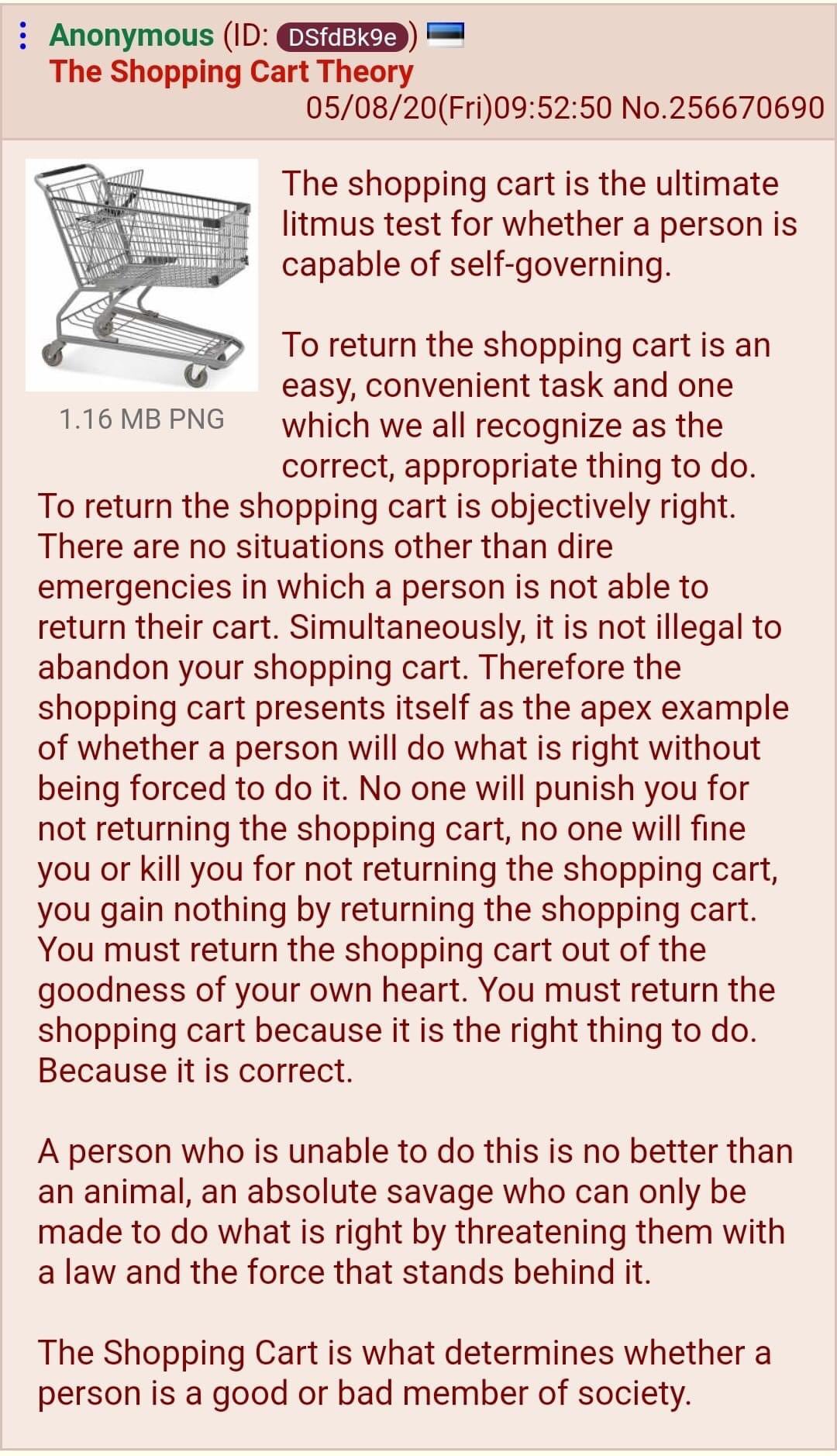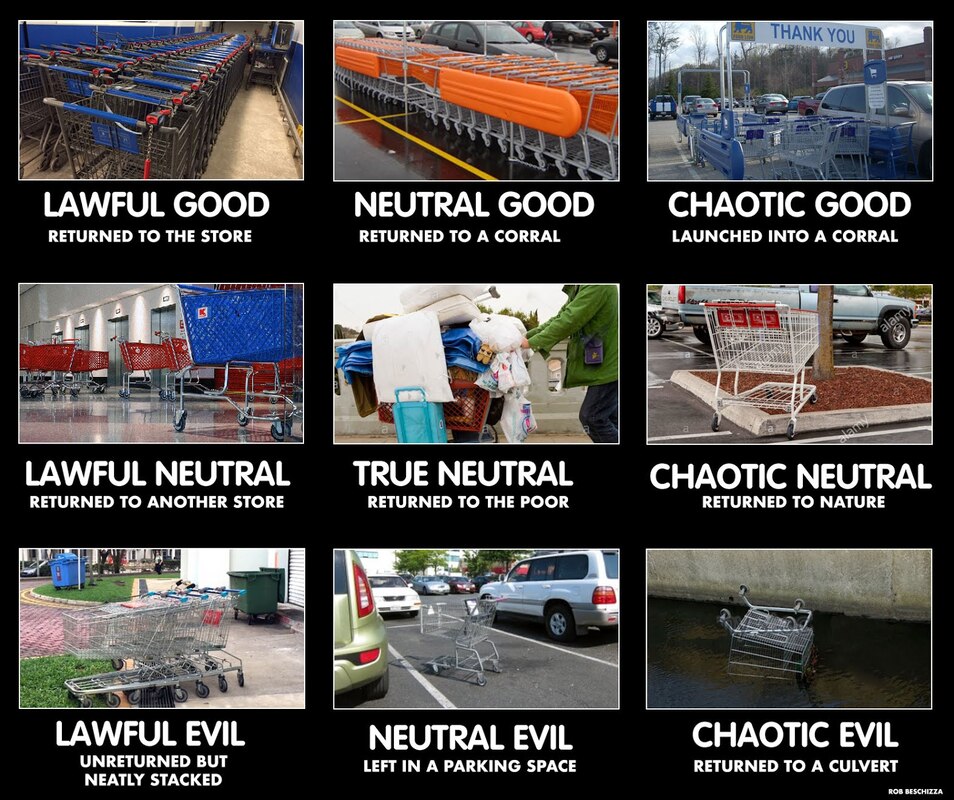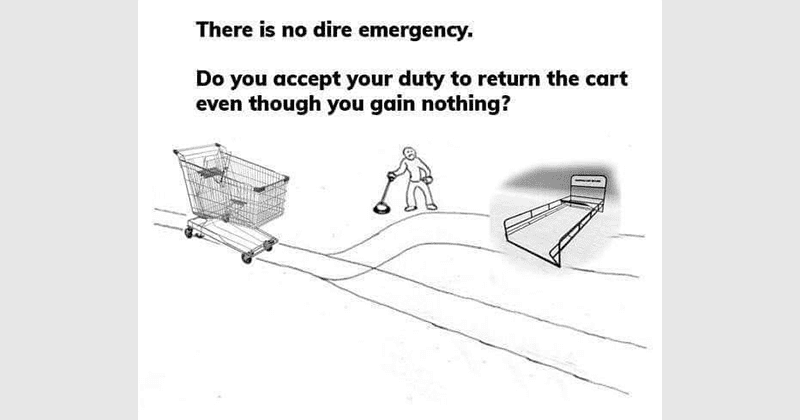|
The viral "Shopping Cart Theory" proposes that an individual's moral character can be determined by whether they choose to return a shopping cart to its designated spot after use or whether they simply leave it wherever it suits them. "The shopping cart is the ultimate litmus test for whether a person is capable of self-governing, the post states. To return the shopping cart is an easy, convenient task and one which we all recognize as the correct, appropriate thing to do. To return the shopping cart is objectively right. There are no situations other than dire emergencies in which a person is not able to return their cart. Simultaneously, it is not illegal to abandon your shopping cart. Therefore the shopping cart presents itself as the apex example of whether a person will do what is right without being forced to do it." The author of The Shopping Cart Theory continues, "No one will punish you for not returning the shopping cart, no one will fine you, or kill you for not returning the shopping cart, you gain nothing by returning the shopping cart. You must return the shopping cart out of the goodness of your own heart.
You must return the shopping cart because it is the right thing to do. Because it is correct." The theoretician then goes on to make some rather radical statements about those who do not pass The Shopping Cart test. "A person who is unable to do this is no better than an animal, an absolute savage who can only be made to do what is right by threatening them with a law and the force that stands behind it," they state. "The Shopping Cart is what determines whether a person is a good or bad member of society," the theory concludes. Although at face value, The Shopping Cart Theory might come across as an extreme mode of judging one's character, and it takes on a different meaning when you equate it with those who strictly follow social distancing measures for the safety and wellbeing of every member of society and those who are willing to toss the vulnerable aside. After tossing a multitude of arguments and counter-arguments, the majority on Twitter voted in agreement with the theory, with many retail workers presenting their personal experiences to make the case. Twitter user @THEheadhunter44 wrote: This is true. I'm the cart guy at a grocery store and I can confirm that I look down at you when I see you abandon the carts. Please for the love of God and man and all that is right with the world RETURN YOUR CART. YOU'RE NOT HELPING ANYTHING BY DITCHING IT! PLEASE! Another user @mercedestractor tweeted: I worked at a grocery store in the past and you’d be absolutely shocked at how many people don’t. Even worse often they’ll like kick it up on the curb so it doesn’t roll away, meaning they literally put effort into not returning it. Meanwhile, some users pointed out that returning a shopping cart—although a simple enough job to most—might be a bigger deal for those with disabilities or those suffering from chronic illness or pain. The shopping cart theory, as is stands, is ableist. Shared from https://scoop.upworthy.com/ — Domina Elle (@DominatrixElle) May 15, 2020
0 Comments
Leave a Reply. |








 RSS Feed
RSS Feed